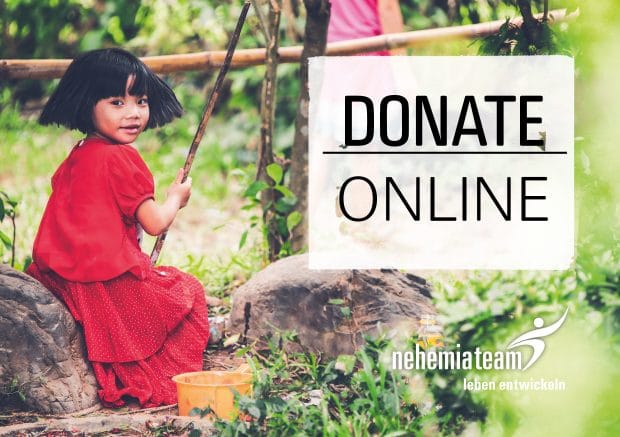From the deforestation of the rainforest, the protection of species, the poverty of the population to natural disasters and corruption – Borneo is struggling with a long list of problems that can only be tackled bit by bit in international cooperation. There are many individual puzzle pieces that have to come together here. What part the nehemia team plays is told by employee Ibu Luisa, who heads the Montessori kindergarten in Melingkat.
„When I first heard about Montessori I had no idea what this was supposed to be. I only knew the classic system used in Kalimantan and I was very reluctant to implement any new ideas because I thought it was just going to lead us into a big mess. Today I am very happy we decided to try it anyways.
When we first started out with the classic method we didn‘t see a big impact in the children‘s later life. Yes, as soon as they start going to school you can tell which ones had visited a kindergarten prior to that. But the only difference from our children to any other kindergarten kids was that we taught them more about God.
But after we started implementing Montessori methods I could see a steady improvement: when the children go to school the teachers start ranking them and usually the ten best students of a class get a special certificate of recognition. We get the feedback that the majority of the kids who get a certificate actually come from our kindergarten and the principal of the primary school encourages people regularly to send their children to us.
What distinguishes us from the others is our approach. A sad thing that I see often is that there are too many teachers just working for their paycheck. There is little true commitment to actually teaching and developing children.
Every child has abilities and skills but as teachers we need to take the time to find these and develop them.
For this it takes faithful and committed teachers.
A big problem for many children is the infrastructure. In a rural place like this, access to quality education is limited. The child‘s background is not as important as you might think – all children have potential. There are young men and women from this village who went to university and finished their Master‘s degree. All children have potential. But it takes people who see it in them and help them build on that raw potential.
A problem for the children of places like Melingkat are cultural practices that affect parents and children alike. One of the patterns we have seen is that in families with poorly educated parents, there is often no value seen in education at all. Parents believe it is enough to send their children to primary school – and then do a paid job. But bit by bit, we try to break through old ways of thinking and to promote things that advance the village community.
We already see the fruits of our work in our village, even in interpersonal aspects. Families from different faiths often have complicated, even rival, relationships here. But because we accept children from all denominations and teach them about friendship, respect and care, the children bring these values back home and that changes the families and in the end even the whole village community. We can already feel the change, it‘s wonderful.
I believe, for a kid of this age character development is of utmost importance, and internalizing healthy foundations. Children usually develop an interest in learning automatically.
WHAT WE CAN OFTEN
SEE IN OUR COUNTRY
TODAY IS THAT WE
HAVE A LOT OF SMART
PEOPLE WHO LACK
GOOD CHARACTER
AND MORALITY.
That is a root problem in our country. Because that leads to things like corruption and political decisions that harm our nation in the long run.
Of course, people will stick to old habits and pass on what they grew up with and we cannot change that. But our children here grow up with an alternative, to seeing and doing things differently. We are raising a generation that can bring about positive change in our country, based on more integrity and faith. That is the contribution we make here in our villages.”
[signoff]
